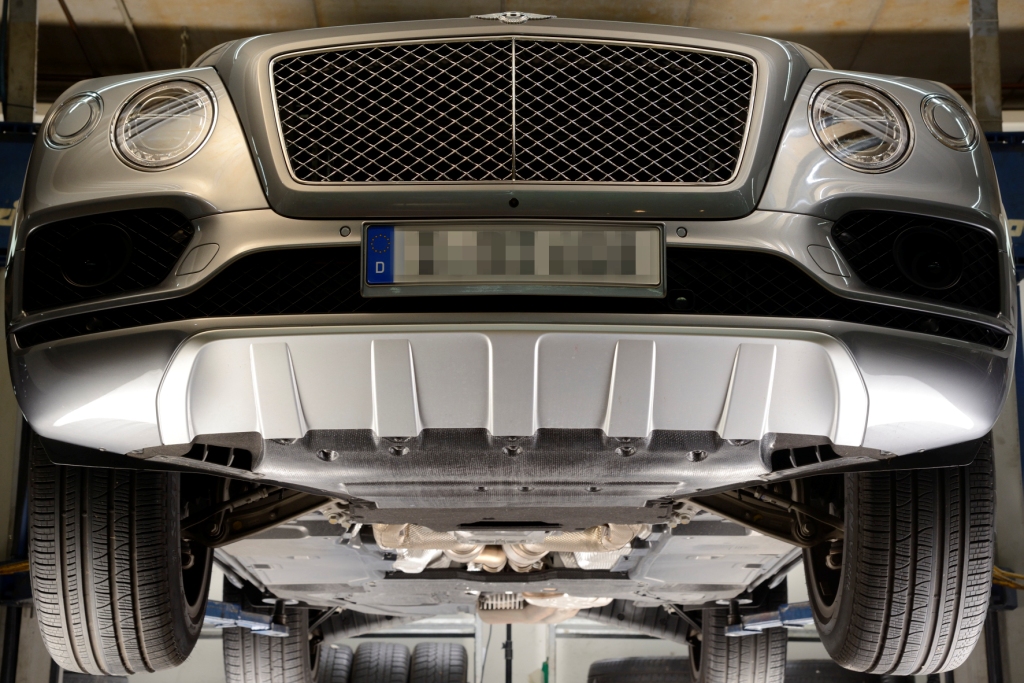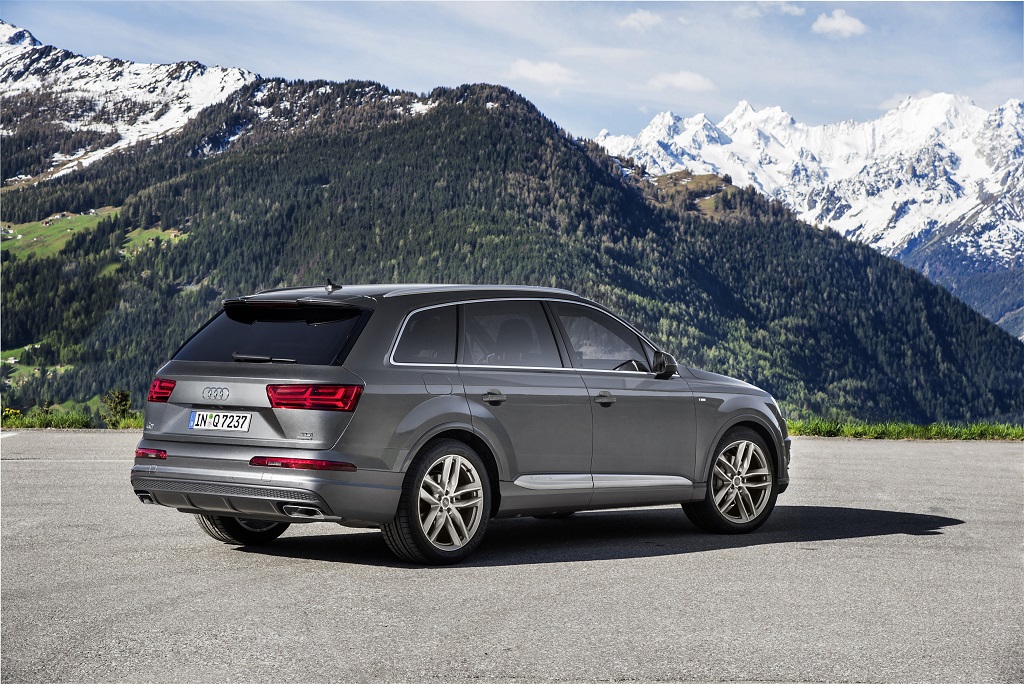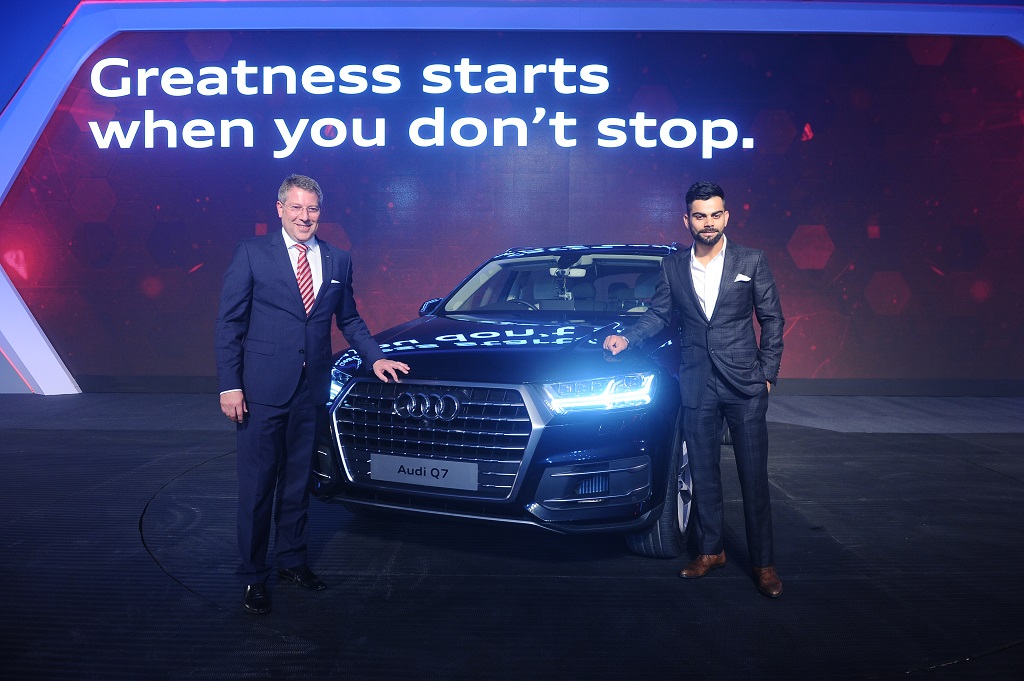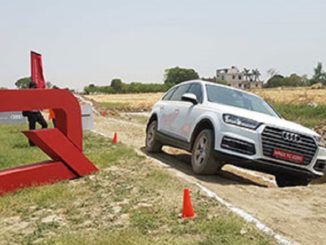- Excellent durability on rough roads
- Dramatically increased strength and stiffness
- Same mold for standard components and custom parts
Frequently used for off-road assignments or for driving on extremely poor roads, jeeps and SUVs need to be fitted with particularly durable underbody panels. An innovative material solution for such custom parts is based on the continuous-fiber-reinforced thermoplastic composites of the Tepex brand made by LANXESS’s subsidiary Bond-Laminates GmbH. These enable the manufacture of virtually indestructible engine shields, fuel tank covers and center tunnel covers which were specially developed for the MLB53A platform. They are already in use on several standard models such as the Bentley Bentayga. In the future they will also be applied in the Audi Q7.
“In a trial on a rough and rocky test track, the components withstood the extreme wear and tear of the underbody hitting the surface as well as gravel impact with virtually no damage at all,” says Harri Dittmar, Tepex applications developer. On top of that, the composite material simplifies the production process. “Custom parts can be produced in the same mold as the corresponding standard vehicle components. Processors don’t need to turn other materials and can eliminate investments in additional molds and presses with higher clamping forces,” adds Dittmar.
Simple compression molding process
The shields and covers for the standard and custom models are both fabricated in a compression molding process using polypropylene-based low-weight reinforced thermoplastics (LWRT). The large LWRT blanks are heated in a convection oven and inserted by a robot into a compression mold that can shape up to four components simultaneously depending on part size. The components are then punched out of the finish-contoured blanks or cut out with a water jet. To fabricate the components for the custom parts, a 0.5-millimeter-thick Tepex insert is additionally placed on top of the LWRT blanks and molded together with them, so that the resulting components have a Tepex surface on the side facing the road.
The engine shields and the tank covers are manufactured by ElringKlinger Abschirmtechnik AG, based in Sevelen, Switzerland. It uses the LWRT material ElroCoustic. The center tunnel covers are fabricated by Röchling SE & Co. KG of Mannheim, Germany, from its own LWRT material called Seeberlite. The inserts for all of the custom parts are made of Tepex dynalite 104-RG 601, comprising a polypropylene matrix in which 47 percent by volume continuous glass fiber rovings are embedded as a single-layer fabric.
Outstanding sound absorption
The top layer of Tepex significantly increases the strength, stiffness and above all the toughness of the LWRT components. Dittmar: “Because of its unique structure, LWRT additionally has a very good sound-absorbing effect, which would not have been possible with other compression molding compounds and would have meant less comfort.” The durability of the composite structure can be increased even more if Tepex is used not only on the side facing the road but also on the inside as an overlay. “The result would be a sandwich structure with a core made of LWRT that is even stiffer but nonetheless still lightweight,” says Dr. Egon Moos, Product Manager Underbody Systems at Röchling Automotive.
Wide range of applications
Tepex is used in more than just car underbody panels. It has since become established in many other series applications in automotive lightweight construction. The composite material is shaped and back-injected to make seat backrests, front-end components, brake pedals and bumper crossbars. On account of Tepex’s growing application potential in lightweight automotive engineering, LANXESS has set up a dedicated project group headed by Henrik Plaggenborg that supports partners worldwide through all stages of Tepex component development right up to production launch.



